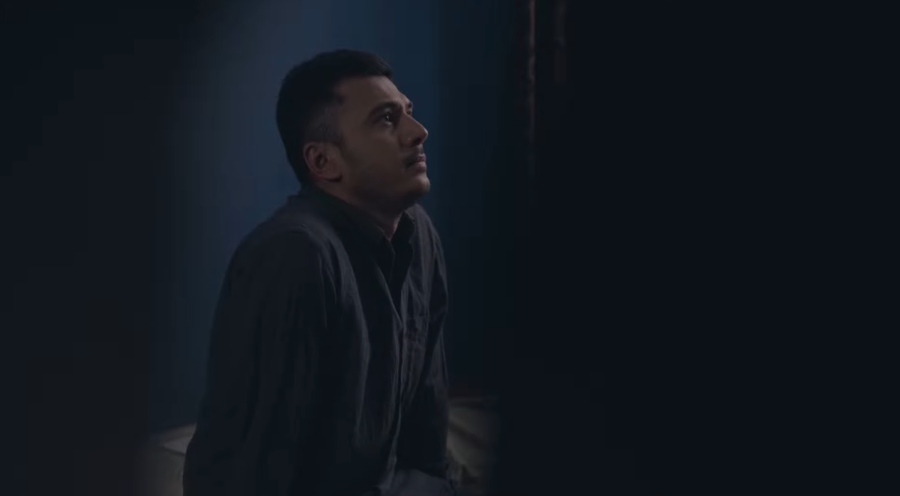Movies
Let’s talk about sexual coercion
‘A Good Apology’, a new short film, makes a decent attempt at highlighting the issue of sexual coercion, a form of sexual violence that is rarely discussed.
Ankit Khadgi
Whenever conversations around sexual harassment take place, one form of harassment that is often ignored and is left out in discourses is sexual coercion. Only when harassment is severe and affects the survivor physically, are they discussed and acknowledged in society.
But sexual coercion can equally impact victims and their mental and physical well-being. Most people think that their partners owe them sexual favours and many do not expect ‘no’ as an answer when it comes to engaging in sexual activity. Sexual coercion is when one persists and tries to convince the other person to engage in sexual activity even when the person is not comfortable with it. Not valuing another human being’s comfort and consent is disturbing and needs to be addressed.
The topic of sexual coercion and how it can have a long-term impact on survivors and their mental health is at the heart of the latest short Nepali film ‘A Good Apology’. Produced by Katha Ghera Productions, the film, which is available on YouTube, makes a decent attempt to highlight this subject in its short runtime of 19 minutes.
Shot during the 2020 lockdown, the film, directed by a well-known theatre and film artist Sudam CK, doesn’t waste time and directly deep dives into the story. The film opens with a scene of a group of theatre artists interacting over a Zoom call. The actors listen and share each other’s stories as well as hear from the audience who are present with them. And once they are done with sharing their stories, the group performs an impromptu playback act in front of their camera, based on the stories the participants have shared.
In one such session, a woman, one of the audience, shares how one of her former partners pressured her to engage in sexual acts, even when she didn’t want or like it. Though the incident took place years ago, she says that she is still impacted by what happened and that she is still traumatised. Coincidently, a guy, who lives with a friend, who's also a theatre actor and a participant of that session, overhears this conversation.
When he hears of her experience, he’s taken aback because of the way the woman shares her story. He feels that she is talking about him. Similarly, like the woman's former partner, he also never thought that respecting his partner’s consent is the most important thing in any relationship. And after hearing her story, he feels guilty for his similar actions to his own former partner. But will he really apologise to her and take accountability for the harm he has caused? Or like many people, will he opt to not deal with the issue and not accept responsibility?
The film is all about this, and the actors involved in the film manage to effectively tell the story.
In terms of the film’s idea, concept and story, director CK, who is also the writer of the film, has done a great job in choosing the subject matter.
Since the movie doesn’t deviate from its plot and shows what is absolutely necessary, the film is engaging to watch. The topic is also dealt with sensitivity, and the film effectively manages to make the viewers empathise with the harassment victim.
In the film, before the victim shares her traumatic experience, she turns off her camera. It’s through her voice that viewers get to hear the story. Throughout the movie, we never see the victim’s face but we do see the guy, guilt-ridden and finding it difficult to accept the truth.
The makers of ‘A Good Apology’ have put the spotlight on the perpetrator and have centred the film around his reaction upon learning of the horrendous consequences of his actions. Although the film is actually centred around the perpetrator of the harassment, our empathy is still with the survivor, whose face we never see in the film.
The decision of not showing the face of the victim is also a thoughtful act. By not showing her face, the film somehow delivers a message that when it comes to cases of sexual harassment, the spotlight should be on the perpetrators, which will force them to reflect and ponder on the hideous acts they have committed.
By only including the victim’s voice, the film effectively manages to place the spotlight on the perpetrator and his reactions..
Another great thing about the film is also its cinematography. Rajeela Shrestha, the film’s cinematographer, cleverly uses the camera to not only record the events but to use it as a tool to depict the emotions of the characters as well.
In one of the final scenes of the film, the perpetrator is shown in a self-reflective mood and admits to the harm he has caused to his former partner. Shrestha uses tight camera frames to show the perpetrator's guilt-ridden face.
While the subject matter the film raises and how sensitively it deals with the issue deserves applause, the film does falter in dialogues and acting. At some places, the dialogues don’t sound as natural and raw as they should be.
For instance, in one of the scenes, after the survivor shares her experience, the back and forth conversation between her and the moderator of the session (played by Akanchha Karki), seems very staged and unnatural. Karki doesn’t speak like how people would normally do in real-life situations. This is a huge loss for the film because the way Karki’s character speaks and reacts when the victim shares her experience could have made a huge impact on the film and viewers.
Similarly, in many scenes, the acting performances do lack subtlety in terms of emotions, facial expressions, and dialogue delivery. The actors, who are mostly from theatre, speak and act louder than they should and their performances do lack the needed theraav (calmness).
Nevertheless, for the subject issue the film raises and the way it handles it, the film deserves a watch.
In this society we live in, many perpetrators of sexual harassment aren’t held accountable and allowed to walk freely while their victims are left to deal with the trauma and the hurt for years. Making matters worse is that society usually puts the spotlight on the victims and not the perpetrators. And the film ‘A Good Apology’ effectively (apart from a few shortcomings) manages to get across the message that it is the perpetrators who should feel shameful and live their life in guilt, not the survivors.




 9.6°C Kathmandu
9.6°C Kathmandu












